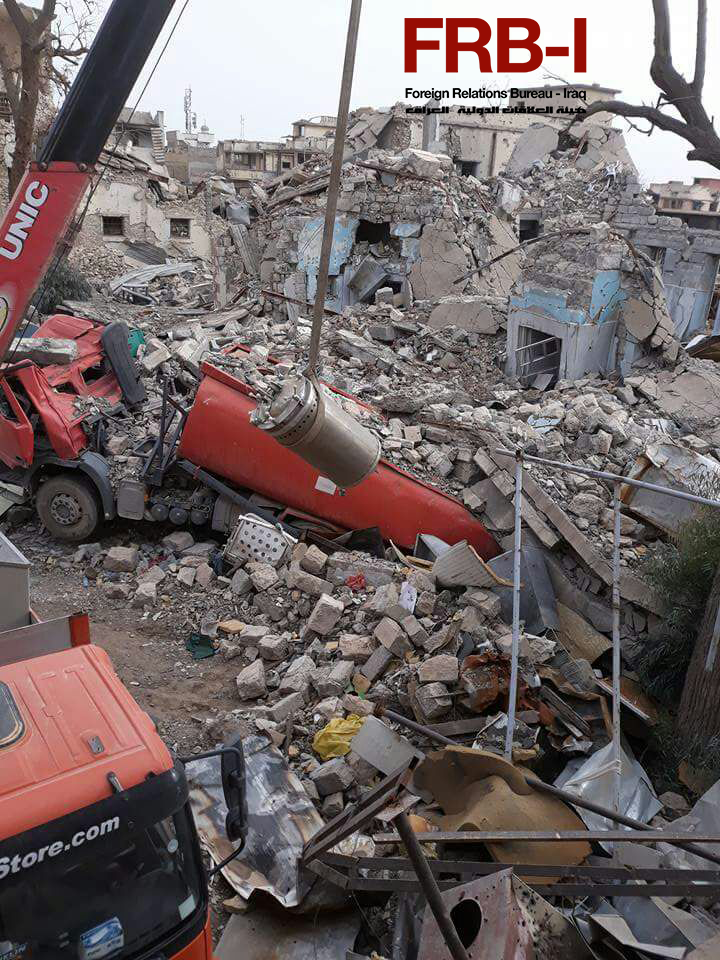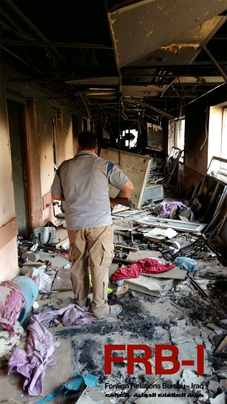According to the UN Migration Agency, before retaking the city form IS, Mosul had 12 public hospitals and more than 70 health facilities, including primary healthcare centres and health clinics. In the western side of Mosul, Madinat al Tib (the Medical City), which was the largest healthcare complex in the city, and al Salam Teaching Hospital, which was the largest public hospital in the eastern side of Mosul, have been severely damaged.
In an interview with Dr Rabah al Abadi, a staff member of al Salam Teaching Hospital, it became c;ear most hospitals and clinics in Mosul were out of service because of the heavy fighting the city had witnessed, that caused wide-scale damage to them.
“The hospitals that have destroyed on the right side of Mosul are the Republican Hospital (formerly Royal Hospital), the largest hospital in Mosul, has been completely destroyed. al Batool Medical Teaching Centre which includes Ibn Sina Teaching Hospital and al Wafa Medical Centre for diabetes treatment and the Burn Care Hospital have also been completely destroyed.” Dr al Abadi said.
Commenting on the current healthcare provided to the people of Mosul, Dr al Abadi said that there were small health centres and private hospitals in service but they did not meet the civilians growing needs for the healthcare because of the large number of citizens, given the wide geographical size of the city. In addition, the bombings and battles during the liberation of Mosul have inflicted a large number of casualties who are in need for urgent health treatment.
“The health centres operating currently on the left side of Mosul are al Rabee and al Zahraa private hospitals, but they are too small. On the right side of the city, there is only one medical centre with two recovery rooms and two operating rooms in al Muharibeen district”, Dr al Abadi said.
He added that the lack of health service was not only inside Mosul but outside the city as well. The camps for displaced people are still suffering from lack of health services, medical staff and medication.
Dr. al Abadi stressed that there were no signs of reconstruction for Mosul hospitals which are urgently needed.
The Iraqi government has failed to rebuild the public hospitals and other healthcare centres in Mosul that were destroyed during the fighting. The governments neglect has prompted Dr al Abadi and a number of colleagues to form a medical team advocated to provide free healthcare treatment to the people of Mosul.











 RSS Feed
RSS Feed